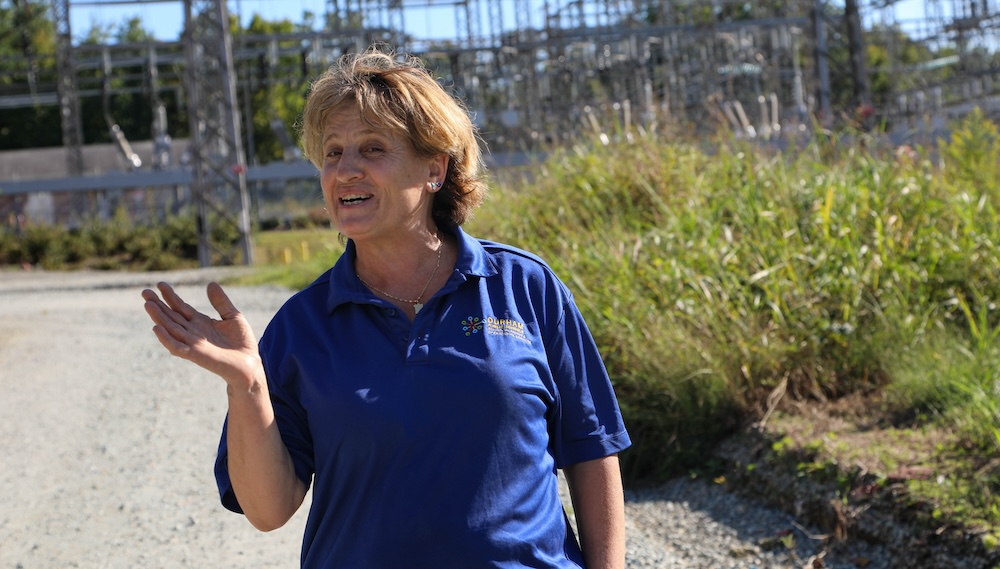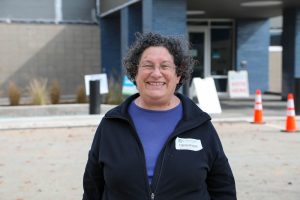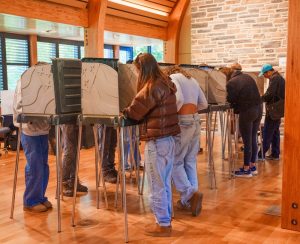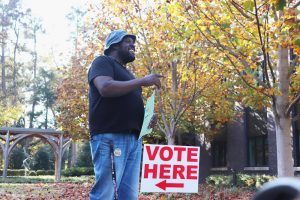On a recent Friday, Lu Tahaj, 52, trudged up Macon Street, an unpaved road around the corner from her house on West Markham. Seventeen houses line the roughly 900-foot stretch of gray dirt and gravel on a hill above Ellerbe Creek.
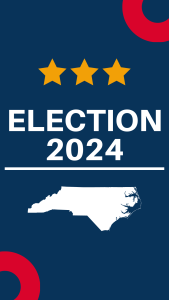
“I’m tired,” Tahaj said. “I’m very tired.”
Because the dirt road lacks proper infrastructure to handle floodwater, rainy days are a particular challenge. After a strong storm two weeks ago, water streamed down the hill and flooded Tahaj’s basement, carrying gravel along with it. When it’s not raining, she breathes in suffocating dust from the road, she says. In lieu of curbs, deep ditches run alongside the road. Recently, she and her neighbors picked up a pedestrian after he fell into the ditch.
Life may change for Tahaj and her neighbors after Nov. 5. If approved by voters, the Streets and Sidewalks bond referendum would allocate $10 million for paving nearly 11 miles of unpaved Durham roads, including Macon Street, near Tahaj’s house.
The bond referendum draws upon a 2019 city study, which found 179 unpaved roads in the city stretching over 19 miles. Following the study, the City Council pledged to pave all these roads over the course of 10 years. The city has paved six miles since then, at a cost of about $1.2 million per year, and will complete another nearly two and a half miles this year. If passed, the bond referendum would speed up the process, making it possible to pave the remaining roads by the 2029 deadline.
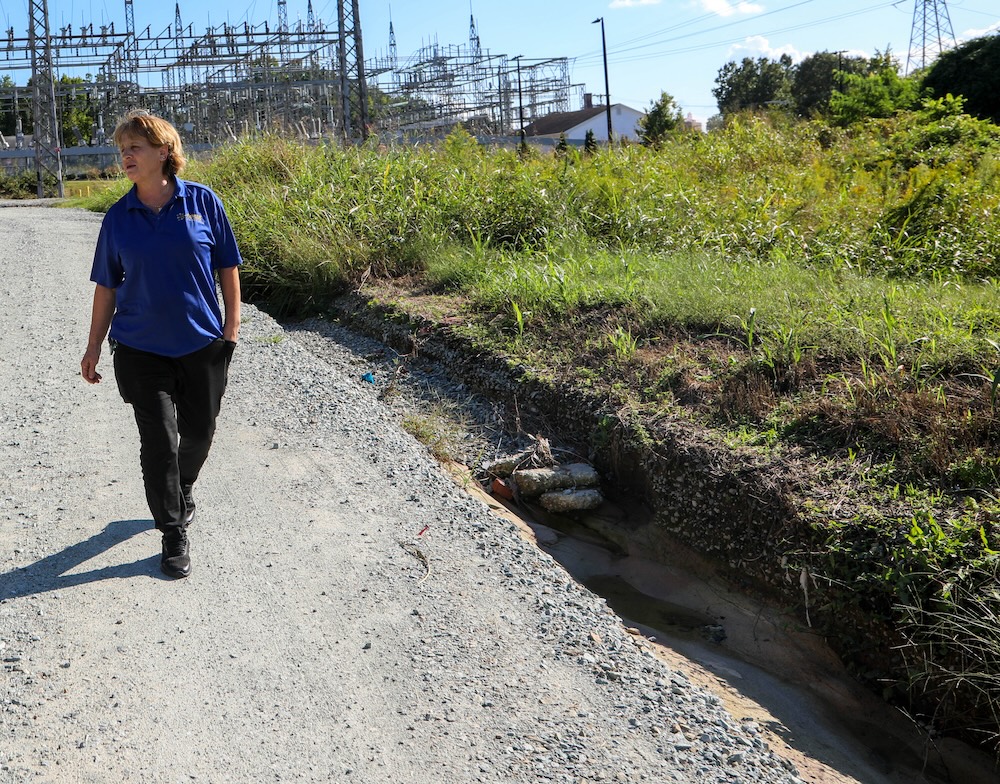
Bonds are an effective way to complete city projects, according to Sean Egan, director of the city transportation department.
“The $10 million in the bond referendum would enable the City to accelerate this work and address recent construction cost increases. This would enable the City to respond more quickly to the many residents who have made repeated requests for roads in their neighborhood to be paved,” Egan said.
Dirt roads are more than just pesky pothole generators. Gravel from unpaved roads can wash onto paved streets, says John Tallmadge, director of Bike Durham, a nonprofit advocating for safe and sustainable transportation for Durhamites. This can be hazardous for Durhamites on bikes or in wheelchairs, as well as those on foot who could trip on loose pebbles.
Gravel and dirt from unpaved roads pose other issues to the surrounding area, including water contamination and erosion, according to Nicole Llinás, director of the Ellerbe Creek Watershed Association, a nonprofit dedicated to preserving the creek. The nonprofit is installing projects to reduce flooding and filter runoff, such as landscaped areas that use specific soil and plants to filter stormwater runoff.
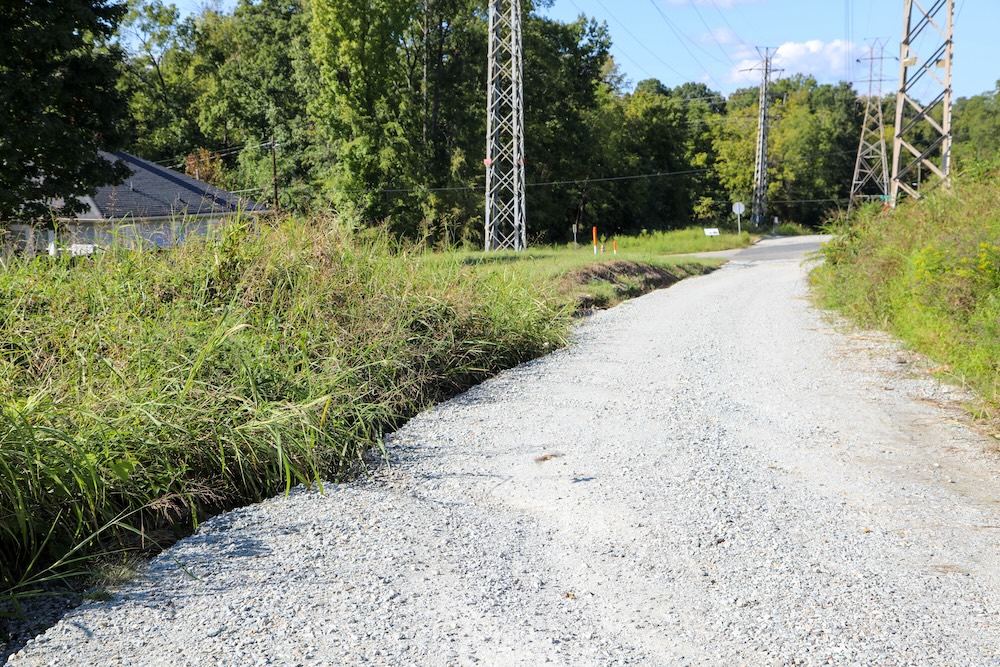
Stormwater flows where gravity takes it. Because most unpaved roads in Durham lack curbs, flowing stormwater tends to cause erosion at the grassy edges of the street, Llinás said.
At a recent cleanup at the Pearl Mill Nature Preserve, which borders Ellerbe Creek, the group found light-colored sediment and gravel that traced back to unpaved roads in Tahaj’s neighborhood.
“It presents an additional pollutant in the waterways that threatens the quality of life for all of our wildlife that lives in and depends on these stream systems,” Llinás said.
“Think about it like your garbage disposal,” Llinás said. “If you had a bucket of sand in your sink, and every time you washed your dishes there was just like a little bit of sand getting into your garbage disposal.It’s going to clog the system up.” As a result, the organization must regularly clean out the nature preserve.
The transportation bond referendum is one of two bond referenda on the ballot this fall, along with a separate referendum focussed on parks.
In addition to paving dirt roads, the transportation referendum includes $30 million for street repaving, $15 million in sidewalk repairs and $60 million for new sidewalks — a total of $115 million for all projects. If passed, the street paving project would begin construction this summer, according to the city. The other projects will likely be ready from summer to fall of next year.
The Streets and Sidewalks bond would increase property taxes by around 1.99 cents per $100 of assessed value, while the parks referendum would add 1.47 cents, according to the city.
If both bonds pass, a house valued at $100,000 would see an annual tax increase of $34.60, based on current property valuation. The actual increase is expected to be lower, according to city projections.
Some Durhamites question the referendum’s price point. Duke professor David Berger, 42, supports the measure on the whole. But he questions why sidewalks, which feel like “routine maintenance,” should be part of a bond referendum.
“It’s just important that we just are a lot more transparent about some of the sticker shock items. Like why does it cost so much per mile to build sidewalks?” said Berger. “I think we should be benchmarking to relevant counties – Wake County, Orange County – how much it costs them.”
Despite his questions, Berger says he’ll most likely still vote yes.
Soon, Durham voters will determine if the multi-million dollar bond gets the green light. For now, “I can keep dreaming,” Tahaj said.
Above: Lu Tahaj points out erosion along Macon Street, an unpaved road around the corner from her house. Photo by Abigail Bromberger — The 9th Street Journal

